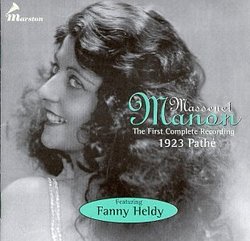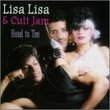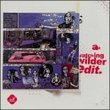| All Artists: Massenet, Heldy, Busser, Opera-Comique Title: Manon (First Complete Recording - 1923) Members Wishing: 0 Total Copies: 0 Label: Marston Release Date: 10/14/1997 Album Type: Import Genre: Classical Styles: Opera & Classical Vocal, Historical Periods, Modern, 20th, & 21st Century Number of Discs: 2 SwapaCD Credits: 2 UPC: 638335200323 |
Search - Massenet, Heldy, Busser :: Manon (First Complete Recording - 1923)
 | Massenet, Heldy, Busser Manon (First Complete Recording - 1923) Genre: Classical
Marston's magical time machine takes us back to 1923 and the first complete (well, almost complete) recording of Massenet's staple. Its considerable merits include a stylistic authenticity that's all the more treasurable... more » |
Larger Image |
CD DetailsSynopsis
Amazon.com Marston's magical time machine takes us back to 1923 and the first complete (well, almost complete) recording of Massenet's staple. Its considerable merits include a stylistic authenticity that's all the more treasurable for having been eroded over the years. Heldy, the Manon, was a Belgian soprano whose high, smallish voice was sharply focused, sometimes to the point of edginess. She's firmly in the Gallic tradition, with clear diction and a winning combination of elegance and passion. Her partners here are good, typical of their time and place. So is the conducting of Henri-Paul Busser, a protégé of the composer. He keeps things moving, and livens the music with stylish portamentos. But his smallish band sounds accident-prone at times. Transfers of the acoustic originals are amazingly fine. --Dan Davis Similar CDs
|
CD ReviewsMY FAVOURITE MANON. Charlus | NYC | 01/17/2006 (5 out of 5 stars) "The man who conducts this recorded performance, Henri Büsser, was born on 16 January 1872 in Toulouse and died in Paris, on 30 December 1973, aged nearly 102. Through that incredible lifespan, Büsser went from being musical secretary to Charles Gounod, the composer of Faust and Roméo et Juliette (who had been, together with César Frank, his composition teacher,) to celebrated orchestrator of pieces by Fauré [Apres un rêve, Op. 7/2; Pénélope, F's only opera; Dolly's Suite] and Debussy [Petite Suite] to winner of the prix-de-Rome (1893) as respected composer and conductor (he also conducted EMI's legendary 1930 recording of Gounod's FAUST,) and musicologist (he prepared noted critical editions of works who were only known in distorted "versions", such as Bizet's Ivan le Terrible, Adam's ballet GISELLE and, most notably, Gounod's MIREILLE,) to celebrated teacher of famous modern composers, such as Henri DUTILLEUX. In private life he was married to the noted French soprano Yvonne Gall (1885-1972) who sang Juliette to Agustarello Affre's Roméo in Pathé's 1912 __Le théâtre chez soi__Roméo et Juliette recording. During the last two decades of Massenet's life, Henri Büsser was one of the composer's closest protégés, assisting him in the preparation of a number of premières and revivals. Listen to the prelude of the opera, conducted by Büsser, as performed in this scratchy old recording by the orchestra that had played at the première: the perfectly gaged rubato, the beautifully executed portamento of the strings, the natural way they surge to the climax of a phrase, as to the manner born....Again and again, in spite of the cramped circumstances of recording under the acoustic process, without second takes or tape splicing, through all the technological drawbacks, you can hear a performance drenched with poetry, romanticism and CLASS. The tempi are absolutely right and the pace of the drama wonderfully sustained. Belgian soprano Fanny Heldy (1888-1973) was born near Liége. After graduating from the Liége Conservatoire, she made her debut at the Théâtre de la Monnaie, Brussels, in 1910, as Elena in Gunsbourg's Ivan le Terrible. Between 1914 and 1918 she sang at Monte Carlo: Mimi, Elvira in Ernani, Salomé in Hérodiade, Gounod's Marguerite and Boïto's Margherita. Heldy's debut at the Opéra-Comique occurred in 1917 as Violetta; she remained a member of the company for twenty years and there achieved some of her greatest triumphs, in a varied repertoire that encompassed not only Rosina, Olympia, Antonia and Manon, but Mimi, Butterfly and Tosca as well. It was at the Paris Opéra, however, where she bowed as Juliette in 1920, that Heldy reigned supreme as prima donna assoluta for a quarter of a century. There she added to her repertoire such parts as Nedda, Elsa, Ophélia, Esclarmonde and Thaïs. In 1921 she sang in the world première of Gabriel Dupont's Antar and in 1935 created the role of Portia in Reynaldo Hahn's Le Marchand de Venise. Fanny Heldy had a considerable international career. Toscanini invited her to La Scala to sing Mélisande and Louise, two of her most famous roles, in 1926. Later that year she caused quite a sensation when she appeared with Fernand Ansseau at Covent Garden in....Manon. Critical opinion of Heldy has never been very high in the US, where she was known exclusively by her late, electrical HMV recordings, which show her as a rather bored and super-Gallic sphinx. As heard in this earlier recording, her voice is a remarkable musical instrument, capable of much loveliness, brilliance, and power. There is much to admire in her Manon: the beauty of tone (she tosses off some stunning high Ds) never shrill or brittle; her remarkable fidelity to Massenet's profusion of expression and articulation markings (no one has surpassed her in this regard: not Féraldy, as superb as she is both in excerpts and on her complete recording; not Yvonne Gall, widely admired for her meticulous musicianship; not even Ninon Vallin.) But the chief virtue of Heldy's performance is its constant variety. In this she is inarguably unique. Not for her the one-dimensional portrayal: Manon Naïve; Manon Coquette; Manon the Harlot. Her Manon is all these and more, as events within her soul dictate. And she is sincere. Her innocent enthusiasm in "Je suis encore tout étourdie" is devoid of coyness and affectation; her "Voyons, Manon" is truly meditative. As the emotions become more subtle, so does her response: "Adieu, notre petite table" is a genuinely tender, wistful reflection. And when she must rise to the great moments--the triumphant abandon of "Je marche sur tous les chemins", the lilting grace of the ensuing Gavotte, the passion of "N'est-ce plus ma main", the heartbreak at the end--they are the more effective for the contrast and nuance. Each of her effects is achieved by purely vocal means, by the careful husbanding of tonal and verbal imagination, not by any extraneous rhethorical emphasis of the Verismo or, worse, the German expressionist school. Listen to Heldy, and you will realise why Sills (too Italian) and Fleming (too German) have it all wrong. Heldy's des Grieux, Jean Marny, had a distinguished career at the Comique and later became the director of the Marseilles opera. His daughter is married to the conductor Georges Prêtre. He did nor have a great voice, but he did have a great heart, and a complete command of the style and manner of singing in French. His chevalier is full of romantic ardour and poetic passion, and all of it elegantly enunciated, not shouted or raved. He reaches the heights in the gaming scene at the hôtel de Transylvannie : "Manon, Sphinx étonnante! Véritable sirène!" cries he, in an ecstasy of bedazzled love and infatuation; he sounds, indeed, like a young cavalier in love, not like an angry Italian fruit-seller. Il chante comme un gentilhomme! This is the style with which Jean de Reszke, Albert Saléza and Edmond Clément captivated the CIVILISED world! Alas, it is all no more. Like the supporting cast of the Opéra Comique that seconds these three great artists, like the Opéra Comique itself, it is gone. It is all over but the shouting. " Of great interest to opera historians F. Behrens | Keene, NH USA | 12/06/2000 (4 out of 5 stars) "I have always had a great fondness for ancient recordings of operas that I have heard only on stereo LPs or CDs with international casts that may or may not be masters of the traditions these works demand. For example, Massenet's is best done by a French speaking cast that can handle the spoken dialogue and finer points of French Opera Comique techniques. In the past, the only really (to me) satisfactory non-French Manon was that of Victoria de los Angeles with Monteux conducting and an all-French cast behind her. But now we have a gallant little recording company in Pennsylvania named Marston that is restoring operatic treasures from old acoustic 78s and reissuing them in the best possible shape on CDs. One of their sets (52003-2) gives us the first complete (or nearly complete) recording of "Manon" that was issued by Pathe in 1923 as part of an "Opera in Your Home" series that did not sell very well among the French public. Not only does Marston fit it onto only two CDs, but there is room left over on the second for selections from this work sung by other artists. Here is a comparison of the duration of each act compared with that of the complete Beverly Sills version, the Marston set being listed first: Act I--36:00/43:51; Act II--23:28/28:01; Act III--51:03/64:20; Act IV--17:02/22:41; Act V--13:48/18:12. This should give you some idea of what Pathe had in mind when they committed this work to 48 sides of 78 rpm discs with running times of 1:48 to 3:48 minutes. Fanny Heldy gives us a Manon that for once sounds as young as she is supposed to be. The rest of the cast, including an elegant Des Grieux in Jean Marny, is French to the core. The Father, however, is in very poor voice, but his scenes are few and his contribution can be ignored. Now please, the sound is 1923, the tempi cannot be considered as what Massenet had in mind since there was always that time limit imposed by the 78 rpm format, the voices are invariably sharp sounding, the ensembles often a mess due to the cramped conditions in a studio and a recording device that depended on lung power to cut the grooves, and so on. All the details are neatly handled by Ward Marston's informative notes, which are worth reading on their own. But as a piece of history--but artistic and technical--this set is a must for any lover of opera history and certainly for all Departments of Music in colleges and universities." Definitive................... Robert C. Hufford | Hopewell, VA USA | 08/28/2008 (5 out of 5 stars) "I came across this recording during my research for a small bio of Miss Heldy that I did for a website. I'll make this simple; she is the Manon [and French soprano] for the ages. French is a language that has to be born in the singer...those who have to learn it are simply never [actually, rarely] as good. Miss Heldy was born to sing this role. She captures Manon's plight, and the full range of her feelings, to perfection, giving her a vulnerable, little girl, quality that will grab your ear, and hold on. This is something that one is lucky to hear once in a lifetime. She was 35 when this was made, and later records show that she obviously took wonderful care of her voice [being freed from the necessity of earning her daily bread by marriage to a ton of money].
If the rest of the cast, and the orchestra, don't reach Miss Heldy's level, they still set a very high standard. They understand French opera. A simple statement, but so few do. Leon Ponzio is brilliant as Lescaut; Jean Marny as Des Grieux is wonderful...Alfredo Kraus remains my ideal as Des Grieux [a contradiction of what I said about language], but Marny is excellent. {Actually, Kraus is my ideal at anything he ever sung, but that's another topic}. This is, of course, 1923 acoustic...that it was done at all is remarkable, that it was done so well is a miracle. Cuts? Sure, but so what? Ward Marston's transfers are the work of a genius. Period. You really have to hear Fanny Heldy...there have been other great Manons [Sayao--another language contradiction, and a fair comparison to Madame Heldy], but she sets the standard forever." |

 Track Listings (26) - Disc #1
Track Listings (26) - Disc #1



